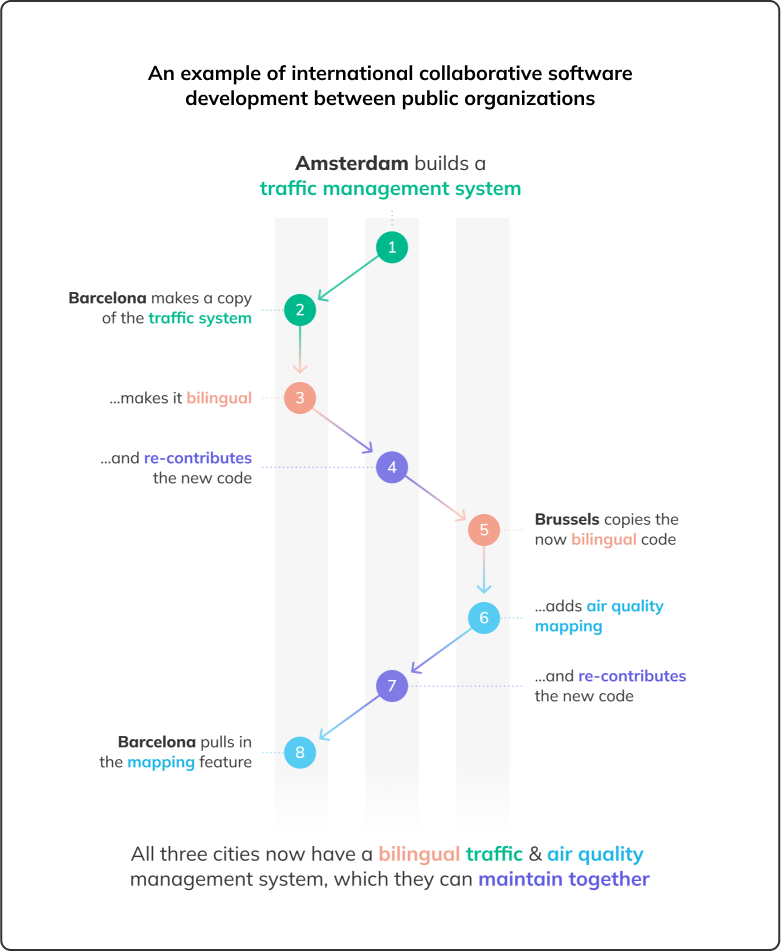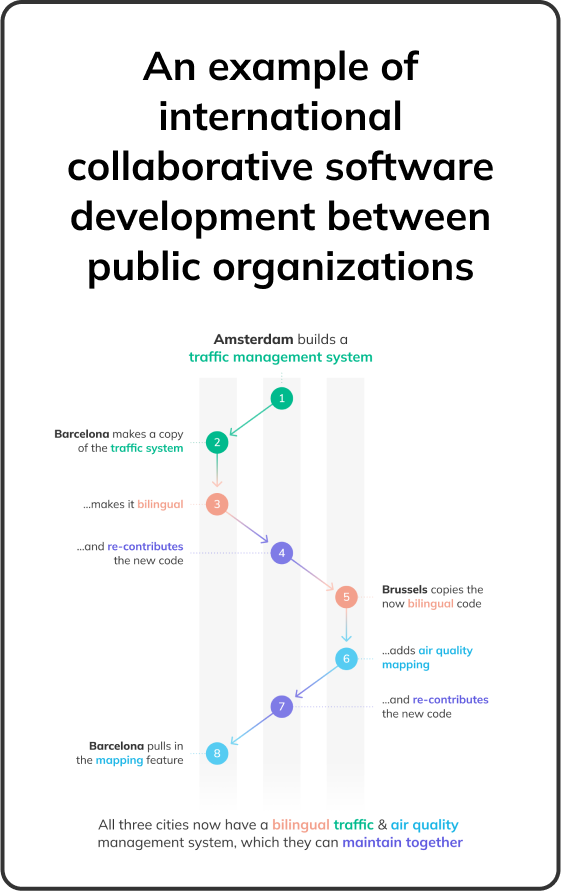An ecosystem of collaborative digital public infrastructure production
Cities, states and nations across the globe recognize their own responsibility and agency toward
designing, maintaining and improving the digital public products that serve their constituents and
administrations. The Foundation for Public Code supports and connects them.
We believe that the most effective, adaptable, and sustainable long-term approach to this need is for networks of public organizations
and their vendors to collaborate in developing open, shared digital products and services that can
be replicated across countless cities and states, adapting to specific contexts but sharing the cost and responsibility of the core functionality through open collaborative organizations.
These stewardship organizations
can support large-scale ongoing software production projects with governance and financial models,
technical steering, and process orchestration. We call these open digital products, the collaborative process of governing and stewarding them, and the ecosystem
of collaborating public and private actors around them, Public Code.
Definitions
Public Code:
(n): The open software product resulting from continuous integrated collaboration between public
administrations, the policy that situates it into civil code, and the ecosystem of vendors,
contributors, and the community of practice around this product.
Public Product Organization:
(n): The NGO that serves as a vehicle for the stewardship of a public code product. Along with the
continuous technical integration, a PPO has a governance model, a financial model, an organizational
structure, a comms process, and a community of practice.
Public Product Stewardship:
(v): The practice of continuously tending to the development and maintenance of a public product. It
is the core activity of a public product organization.
The core process of public code production is the continuous integration cycle
of open source
development.
The large commercial network services providers have evolved an approach to software development that
consistently maintains and improves the product through this orchestrated collaboration process
that can scale to thousands of simultaneous contributors working on one codebase.
This process is extremely well-suited to the type of open collaboration necessary for a heterogenous mix of public and private entities
collaborating on a public platform or service together. The Foundation for Public Code has
helped many public administrations prepare to participate in this type of ecosystem and prepare their
own codebases for open collaboration. We have developed the Standard for Public Code
to as a set of reference criteria by which to evaluate whether a codebase is ready for public
collaboration.







